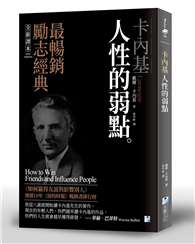Ashley Lawson’s On Edge presents a new picture of postwar American literature, arguing that biases against genre fiction have unfairly disadvantaged the legacies of authors like Shirley Jackson, Patricia Highsmith, and Leigh Brackett. Each of these women navigated a male-dominated postwar publishing world without compromising their values. Their category-defying treatment of gender roles and genre classifications created suspense in their work that spoke to the tensions of the "Age of Anxiety." Lawson engages with foundational voices in American literature, genre theory, and feminism to argue that, by merging the dominant mode of literary realism with fantastical or heightened elements, Brackett, Jackson, and Highsmith responded to the big questions of their era with startling and unnerving answers. By elevating genre play to a marker of literary skill, Lawson contends, we can secure these writers a more prominent place within the canon of midcentury American literature and open the door for the recovery of their similarly innovative peers.
| FindBook |
有 1 項符合
On Edge: Gender and Genre in the Work of Shirley Jackson, Patricia Highsmith, and Leigh Brackett的圖書 |
 |
On Edge: Gender and Genre in the Work of Shirley Jackson, Patricia Highsmith, and Leigh Brackett 作者:Lawson 出版社:Ohio State University Press 出版日期:2024-09-21 語言:英文 規格:精裝 / 226頁 / 普通級/ 初版 |
| 圖書館借閱 |
| 國家圖書館 | 全國圖書書目資訊網 | 國立公共資訊圖書館 | 電子書服務平台 | MetaCat 跨館整合查詢 |
| 臺北市立圖書館 | 新北市立圖書館 | 基隆市公共圖書館 | 桃園市立圖書館 | 新竹縣公共圖書館 |
| 苗栗縣立圖書館 | 臺中市立圖書館 | 彰化縣公共圖書館 | 南投縣文化局 | 雲林縣公共圖書館 |
| 嘉義縣圖書館 | 臺南市立圖書館 | 高雄市立圖書館 | 屏東縣公共圖書館 | 宜蘭縣公共圖書館 |
| 花蓮縣文化局 | 臺東縣文化處 |
|
|
圖書介紹 - 資料來源:博客來 評分:
圖書名稱:On Edge: Gender and Genre in the Work of Shirley Jackson, Patricia Highsmith, and Leigh Brackett
內容簡介
作者簡介
Ashley Lawson is Associate Professor of English at West Virginia Wesleyan College. Her research centers on twentieth-century American literature and women’s creativity. She has published essays on Zelda Fitzgerald, Dawn Powell, Shirley Jackson, Sara Haardt, and Estelle Faulkner. In addition to these specialties, her teaching interests include Iranian and Japanese women writers, femmes fatales, and the American gothic.
On Edge: Gender and Genre in the Work of Shirley Jackson, Patricia Highsmith, and Leigh Brackett 相關搜尋
Frames of ResistanceA Companion to the Aeneid in Translation: Volume 2: Books 1-6
A Companion to the Aeneid in Translation: Volume 1: Introduction and Indices
In the Future of Yesterday: A Life of Stefan Zweig
Orientation in European Romanticism: The Art of Falling Upwards
Jane Austen and Other Minds: Ordinary Language Philosophy in Literary Fiction
Henry James and the Writing of Transport
Memory and Mortality in Renaissance England
Behind Kṛṣṇa’s Smile: The Lord’s Hint of Laughter in the Bhagavadgītā And Beyond
Common Scents: Poetry, Modernity, and a Revolution of the Senses
|











